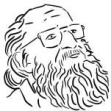A importância de Paulo Freire para a educação humanizadora na educação superior
DOI:
https://doi.org/10.35699/2237-5864.2021.34551Palavras-chave:
Paulo Freire, Educação humanizadora, Educação superiorResumo
O artigo faz parte de uma pesquisa que tem como um dos elementos centrais a educação freiriana. O objetivo do artigo, de caráter teórico, é refletir sobre as possibilidades de processos educativos humanizadores na educação superior, que tenham como propósito a construção da dignidade e da liberdade humana. Em um primeiro momento, tem-se o foco no que significa ser, hoje, um professor comprometido com o processo de humanização, de liberdade e de dignidade dos indivíduos. Em seguida, apresenta-se a contribuição que o processo educativo pode propiciar às pessoas, a fim de fortalecer a humanização e, com isso, ajudar na construção de uma vida mais digna. Na conclusão, ressalta-se a importância de Paulo Freire para o processo educativo e a atuação dos professores da educação superior no desenvolvimento da dignidade e humanização das pessoas.
Downloads
Referências
ARROYO, Miguel Gonzalez. Ofício de Mestre: imagens e auto-imagens. Petrópolis: Vozes, 2000.
ARROYO, Miguel Gonzalez. Reafirmação das lutas pela educação em uma sociedade desigual?. Educação e Sociedade, Campinas, v. 39, n. 145, p. 1098-1117, out./dez. 2018. Disponível em: https://www.scielo.br/j/es/a/jZgN9bxbKPr8m5SKrNCQr5f/?lang=pt. Acesso em: 30 abr. 2021. DOI: https://doi.org/10.1590/ES0101-73302018206868.
BEISIEGEL, Celso de Rui. Educação popular e ensino superior em Paulo Freire. Educação e Pesquisa, São Paulo, v. 44, e104010, p. 1-19, jan. 2018. Disponível em: https://www.revistas.usp.br/ep/article/view/144800. Acesso em: 24 abr. 2021. DOI: https://doi.org/10.1590/s1678-4634201844104010.
CANDAU, Vera Maria Ferrão. Ser professor/a hoje: novos confrontos entre saberes, culturas e práticas. Educação, Porto Alegre, v. 37, n. 1, p. 33-41, 19 mar. 2014. Disponível em: https://revistaseletronicas.pucrs.br/ojs/index.php/faced/article/view/15003. Acesso em: 1 maio 2021. DOI: https://doi.org/10.15448/1981-2582.2014.1.15003.
CANDAU, Vera Maria Ferrão. Ensinar-aprender: desafios atuais da profissão docente. Revista COCAR, Belém, Edição Especial N2, n. 2, p. 298-318, ago./dez. 2016a. Disponível em: https://periodicos.uepa.br/index.php/cocar/article/view/1035. Acesso em: 15 maio 2021. DOI: https://doi.org/10.31792/rc.v0i2.
CANDAU, Vera Maria Ferrão. "Ideias-força" do pensamento de Boaventura Sousa Santos e a educação intercultural. Educação em Revista, Belo Horizonte, v. 32, n. 1, p. 15-34, jan./mar. 2016b. Disponível em: https://www.scielo.br/j/edur/a/cjS9NB4DWjqv8ncCZg7RbDM/?lang=pt. Acesso em: 17 maio 2021. DOI: https://doi.org/10.1590/0102-4698140011.
FREIRE, Paulo. Pedagogia da esperança: um reencontro com a Pedagogia do oprimido. 6. ed. Rio de Janeiro: Paz e Terra, 1999.
FREIRE, Paulo. Pedagogia da indignação: cartas pedagógicas e outros escritos. São Paulo: Editora UNESP, 2000.
FREIRE, Paulo. Pedagogia da autonomia: saberes necessários à prática educativa. 24. ed. São Paulo: Paz e Terra, 2002.
FREIRE, Paulo. Pedagogia do oprimido. 50. ed. Rio de Janeiro: Paz e Terra, 2011.
FREIRE, Paulo. Pedagogia dos sonhos possíveis. São Paulo: Paz e Terra, 2014.
LIMA, Licínio Carlos. A Educação faz tudo? Crítica ao pedagogismo na “sociedade da aprendizagem”. Revista Lusófona de Educação, Lisboa, v. 15, n. 15, p. 41-54, ago. 2010. Disponível em: https://revistas.ulusofona.pt/index.php/rleducacao/article/view/1519. Acesso em: 2 maio 2021.
MARCON, Telmo; SCOLARI, Adriel; MEZADRI, Neri José. Educação para a democracia no contexto neoliberal: desafios para superar a subjetividade concorrencial. Revista Internacional de Educação Superior, Campinas, v. 8, n. 00, p. 1-21, jun. 2021. Disponível em: https://periodicos.sbu.unicamp.br/ojs/index.php/riesup/article/view/8658379. Acesso em: 23 maio 2021. DOI: https://doi.org/10.20396/riesup.v8i00.8658379.
ROMÃO, José Eustáquio. Educação. In: STRECK, Danilo Romeu; REDIN, Euclides; ZITKOSKI, Jaime José (org.). Dicionário Paulo Freire. 2. ed. Belo Horizonte: Autêntica, 2010. p. 133.
SAUL, Ana Maria; SILVA, Antonio Fernando Gouvêa da. O pensamento de Paulo Freire em sistemas públicos de ensino: pesquisando políticas de currículo em um mesmo território, sob diferentes olhares. Revista Teias, Rio de Janeiro, v. 13, n. 27, p. 9-26, abr. 2012a. Disponível em: https://www.e-publicacoes.uerj.br/index.php/revistateias/article/view/24249. Acesso em: 30 abr. 2021. DOI: https://doi.org/10.12957/teias.
SAUL, Ana Maria; SILVA, Antonio Fernando Gouvêa da. Uma leitura a partir da epistemologia de Paulo Freire: a transversalidade da ética na educação, currículo e ensino. Revista Cocar, Belém, v. 6, n.11, p. 7-16, jan./jul. 2012b. Disponível em: https://periodicos.uepa.br/index.php/cocar/article/view/209. Acesso em: 21 maio 2021. DOI: https://doi.org/10.31792/rc.v6i11.
STRECK, Danilo Romeu. Da pedagogia do oprimido às pedagogias da exclusão: um breve balanço crítico. Educação e Sociedade, Campinas, v. 30, n. 107, maio/ago. 2009. Disponível em: https://www.scielo.br/j/es/a/WYVSkbkxVBNDd8M7HsjKZSy/?lang=pt. Acesso em: 3 maio 2021. DOI: https://doi.org/10.1590/S0101-73302009000200012.

Downloads
Publicado
Edição
Seção
Licença
Copyright (c) 2021 Marcelo Augusto da Costa, Ruth Pavan

Este trabalho está licenciado sob uma licença Creative Commons Attribution 4.0 International License.
Autores que publicam nesta revista mantêm os direitos autorais e concedem à revista o direito de primeira publicação, com o trabalho simultaneamente licenciado sob a Licença Creative Commons Attribution que permite o compartilhamento do trabalho com reconhecimento da autoria e publicação inicial nesta revista.
Autores têm autorização para assumir contratos adicionais separadamente, para distribuição não-exclusiva da versão do trabalho publicada nesta revista (ex.: publicar em repositório institucional ou como capítulo de livro), com reconhecimento de autoria e publicação inicial nesta revista.
Política de acesso aberto:
A Revista Docência do Ensino Superior é um periódico de Acesso Aberto, o que significa que todo o conteúdo está disponível gratuitamente, sem custo para o usuário ou sua instituição. Os usuários podem ler, baixar, copiar, distribuir, imprimir, pesquisar ou vincular os textos completos dos artigos, ou usá-los para qualquer outra finalidade legal, sem solicitar permissão prévia do editor ou do autor, desde que respeitem a licença de uso do Creative Commons utilizada pelo periódico. Esta definição de acesso aberto está de acordo com a Iniciativa de Acesso Aberto de Budapeste (BOAI).


























